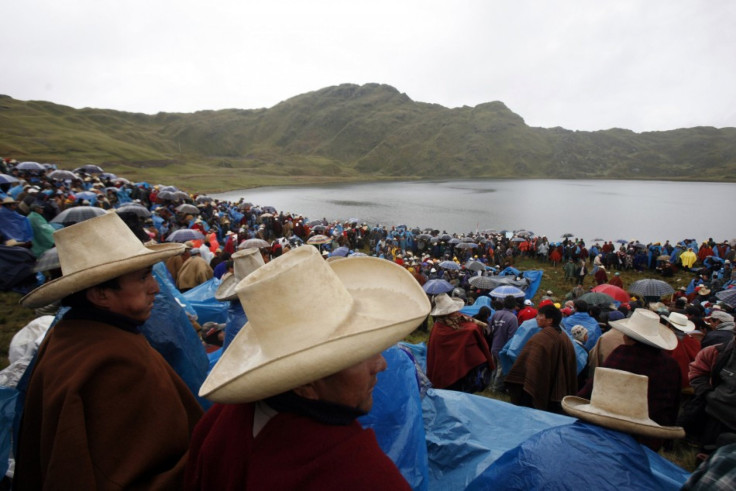Peru Implements Law On Mining Conflicts

(REUTERS) -- Peru implemented a new law on Tuesday that aims to calm debilitating social conflicts over natural resources in the top global metals exporter, and the new rules could cover indigenous and peasant communities in much of the country.
The law on prior consultation was a key campaign pledge of President Ollanta Humala, who took office in July promising to end disputes over mining and oil that threaten to delay $50 billion in projects companies have planned for the next decade.
Protests against new mining, logging and oil projects frequently turned violent during the term of Humala's predecessor, Alan Garcia. More than 100 people died in protests on his watch.
The regulations of the law, published in Peru's official gazette, require companies and communities to sit down and negotiate in detail over natural resource extraction projects and how they will affect the environment and water supplies.
But the law does not give communities veto power, which the state has said would potentially thwart projects needed to keep Peru's bustling economy growing.
Companies in general view the law as one that could make project planning more rigorous, but say it also may help them win approvals for projects and avert drawn-out disputes like one over the stalled $4.8 billion Conga gold mine of U.S.-based miner Newmont.
The law brings Peru into compliance with the U.N.'s Indigenous and Tribal Peoples Convention, which the country ratified in 1994. Indigenous rights groups have pressured the government for years to approve the law.
© Copyright Thomson Reuters 2024. All rights reserved.






















